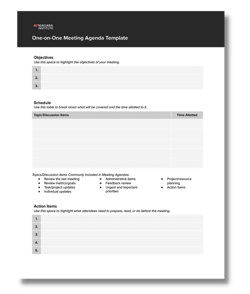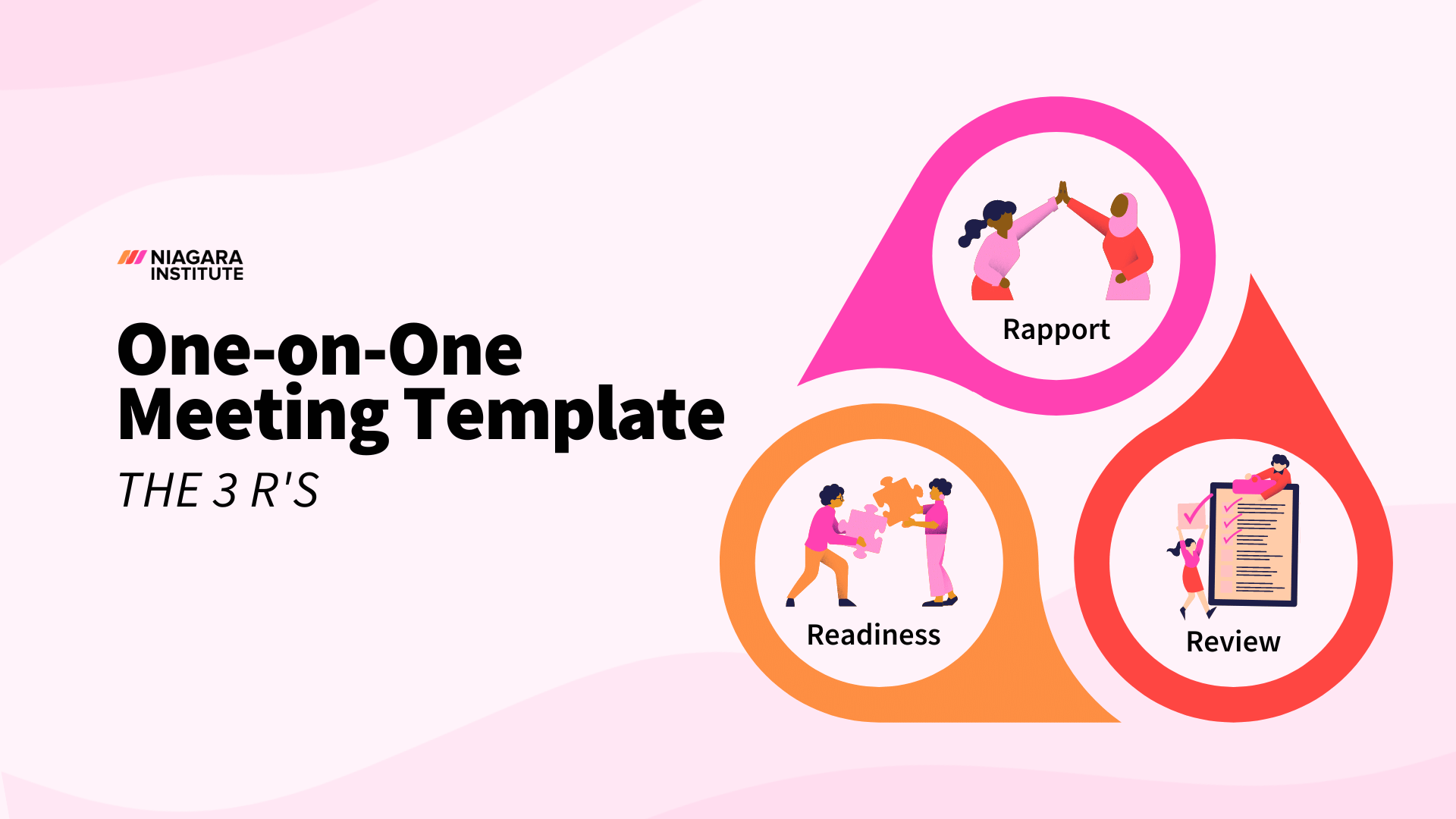One-on-One Meetings Resources
Everything You Need to Have Productive One-on-Ones
Download the 1:1 Meeting Agenda Template
One-on-one meetings, sometimes called touch-base or check-in meetings, are meant to provide leaders and their direct reports with an opportunity to connect on a personal level, build rapport, review progress, share updates, and plan for the future. When both parties are fully engaged in their one-on-one meetings and committed to making the most of them, employees of one study say it benefits them in the following ways:
- Feel closer to their leader, team, and organization
- Allows them to give and receive feedback
- Feel listened to and heard
- Feel more positive
- Helps them be more successful in their role
However, despite the benefits of one-on-one meetings, according to a 2022 study, they might not have the intended impact, especially if they’re treated as a “check the box” activity. Out of the 250 direct reports who were asked to rate their experience with their one-on-ones, almost half rated the experience as suboptimal.
Researchers note that this can happen when leaders view one-on-one meetings as a burden, do not host them on a regular basis, or mismanage them. As a result, employees feel “disconnected, both functionally and emotionally.” This does not mean that direct reports do not bear any responsibility for the success of the meeting. Quite the contrary, actually. Employees must also be willing to prepare themselves, equally contribute, and engage with their leaders in a two-way conversation.
Fortunately, these resources will help you host more productive and meaningful one-on-one meetings with your employees.





.png)

.png)
.png)